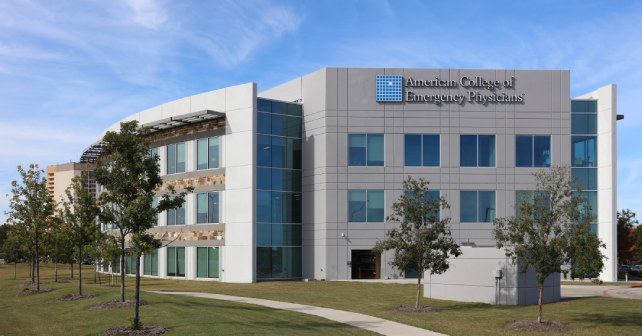
ACEP efforts culminated in an October stakeholder summit convened by the Agency for Healthcare Research and Quality. ACEP is making sure that emergency physicians have a prominent seat at the table for critical conversations that impact you and your patients.
Explore This Issue
ACEP Now: Vol 43 – No 12 – December 2024ACEP-Supported Bill Introduced to Stop Medicare Payment Cuts, Provide Inflationary Update
On October 29, the ACEP-supported bipartisan Medicare Patient Access and Practice Stabilization Act of 2024 (H.R.10073) was introduced in the House of Representatives by congressional physician champions and physician allies. Now, it needs emergency physician support to help enact it into law. This bill addresses the impending 2.8 percent Medicare Physician Fee Schedule (PFS) cuts scheduled to go into effect on Jan. 1, 2025, and provides a temporary update to the PFS via a one-year inflationary update of half the 2025 Medicare Economic Index (MEI), a proposal similar to recommendations that the Medicare Payment Advisory Commission (MedPAC) recently shared with Congress.
This bill is a vital stopgap to fully prevent the imminent cuts facing emergency physicians at year-end, establish an important precedent of reflecting inflationary pressures in the Medicare physician payment system, and provide the physician community and Congress additional time to collaborate on long-term physician payment reform. ACEP and 130 organizations representing physicians, health care providers, hospitals, and other organizations support passing this bill into law.
ACEP Vermont Chapter Voices Strong Opposition to Hospital Conversion Plan
A recommendation by Vermont’s Green Mountain Care Board (GMCB) to convert four hospitals into standalone emergency departments staffed by nonphysicians is being met with strong opposition from ACEP’s Vermont Chapter.
“Emergency medicine is a complex and demanding specialty that requires comprehensive training and expertise,” said Vermont ACEP President Niki Thran, MD, FACEP. “Every Vermonter deserves access to a fully qualified emergency physician when they arrive at an emergency department.”
The chapter’s letter to the GMCB outlined concerns about care quality and patient safety, emphasizing that nurse practitioners (NPs) and physician assistants are indispensable members of the care team; however, they simply do not have the training or education of an emergency physician. The letter explained that unsupervised nonphysician care can lead to:
- Increased costs: NPs delivering care without supervision increased lengths of stay by 11 percent and raised 30-day preventable hospitalizations by 20 percent compared with emergency physicians.
- Increased resource utilization: Multiple studies have demonstrated higher diagnostic test utilization, longer length of stay, and reduced clinical efficiency in non-emergency physician-led staffing models.
- Lower patient satisfaction: Ninety-five percent of voters said it is important to them for a physician to be involved in their diagnosis and treatment, and 62 percent said patients are most likely to be harmed from scope of practice changes.
- Increased medico-legal risk: More than 85 percent of malpractice claims against NPs are because of errors in diagnosis, treatment, and medication.
- Increased inappropriate prescribing: Compared with physicians, nonphysicians are more likely to prescribe antibiotics when they are not needed and overprescribe opioids.
ACEP strongly supports state and national efforts to prioritize physician leadership. There is no substitute for a licensed, trained, and board-certified emergency physician.
Pages: 1 2 3 | Single Page




No Responses to “December 2024 News from the College”